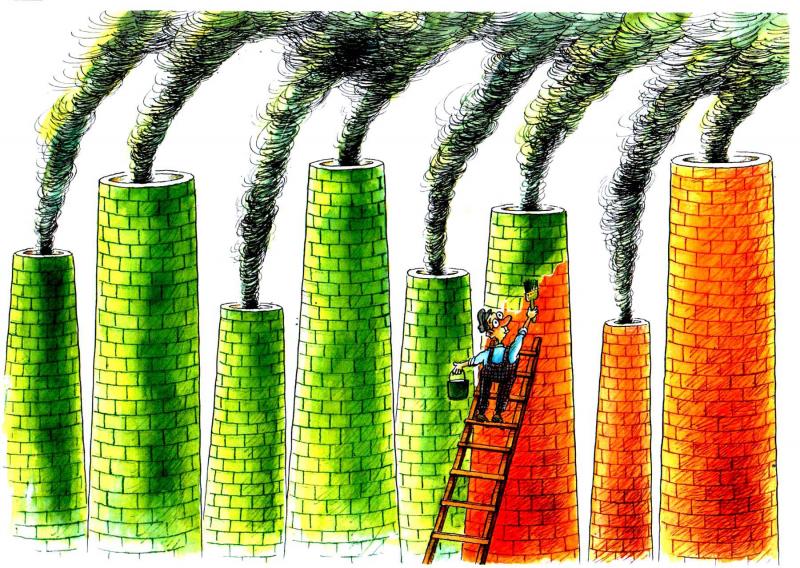Europe is a worldwide leader in the market for "green" investments, i.e. those that fund environmentally sustainable busines
Europe is a worldwide leader in the market for “green” investments, i.e. those that fund environmentally sustainable businesses. Financial companies active in this sector typically promise their customers “sustainable and responsible” investments.
As this investigation reveals, however, those investments are often neither sustainable nor responsible. By exploiting ambiguous regulation and obscure terminology, some of them are actually financing fossil-fuel companies.
To demonstrate this, we analysed four so-called “sustainable” funds offered by Eurizon, an asset-management company controlled by Intesa SanPaolo, Italy’s largest bank. Eurizon is one of many financial companies offering “green” products in Europe, but its case is emblematic. It manages client assets worth €381 billion and, according to its sustainability report, advocates a “financial humanism based on respect, responsibility, and awareness of its own qualities”.
According to our analysis, in 2022 Eurizon bought shares in the hydrocarbon companies Eni, Enel, Repsol, Chevron, TotalEnergies, BP, and Shell for a value of more than €208 million, and placed them within portfolios of “sustainable and responsible investments”, as it called them.
An analysis of data from Refinitiv, a world leader in financial information and infrastructure controlled by the London Stock Exchange Group, shows that, as of April 2023, in Italy and France, the above-mentioned fossil-fuel companies have raked in almost €7 billion of investments thanks to their inclusion in green funds. “These companies have an interest in getting into ‘green’ funds because they will receive more funding that way,” explains Fabio Moliterni, a specialist at the ethical finance company Etica SGR.
By attracting investors through ambiguous language, these falsely sustainable funds have managed to outperform their market. They have guaranteed high returns by tracking indices that are completely devoid of sustainability targets.
Moliterni comments: “The European Commission’s rules leave a margin of discretion to investors in determining their sustainability targets. This makes it easier for the market to adapt flexibly to changes in the regulatory landscape of asset management, and thus to enable product differentiation. But it does not seem to preclude greenwashing. In fact, many funds are still able to pursue strategies that are not aligned with the Commission’s sustainability objectives and instead prioritise returns, with little or no attention to environmental and social impact.”
Not everything “green” is sustainable
Alessandro Messina, an expert in impact finance and sustainability for the independent company Avanzi, adds that “fund managers try to comply with EU regulations as much as possible, but if they have a profitable product on the market they do not try too hard to force the rules.”
Eurizon’s pre-contractual prospectus – the so-called “Key Information Document” (KID), which contains the information on which investors should base their decisions – even presented the funds in question as “sustainable and responsible investments“. This despite the fact that they do not comply with the criteria laid down in European regulations.
Fonte: voxeurop.ue

